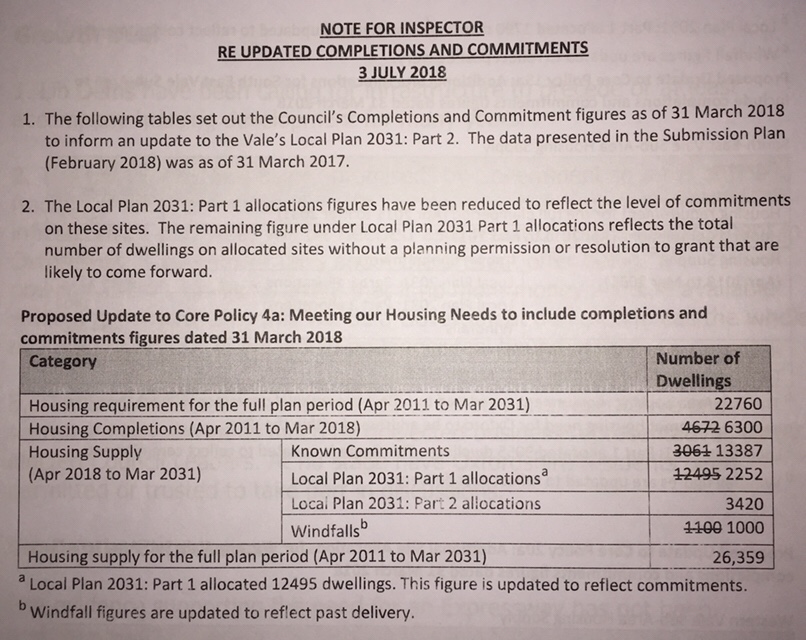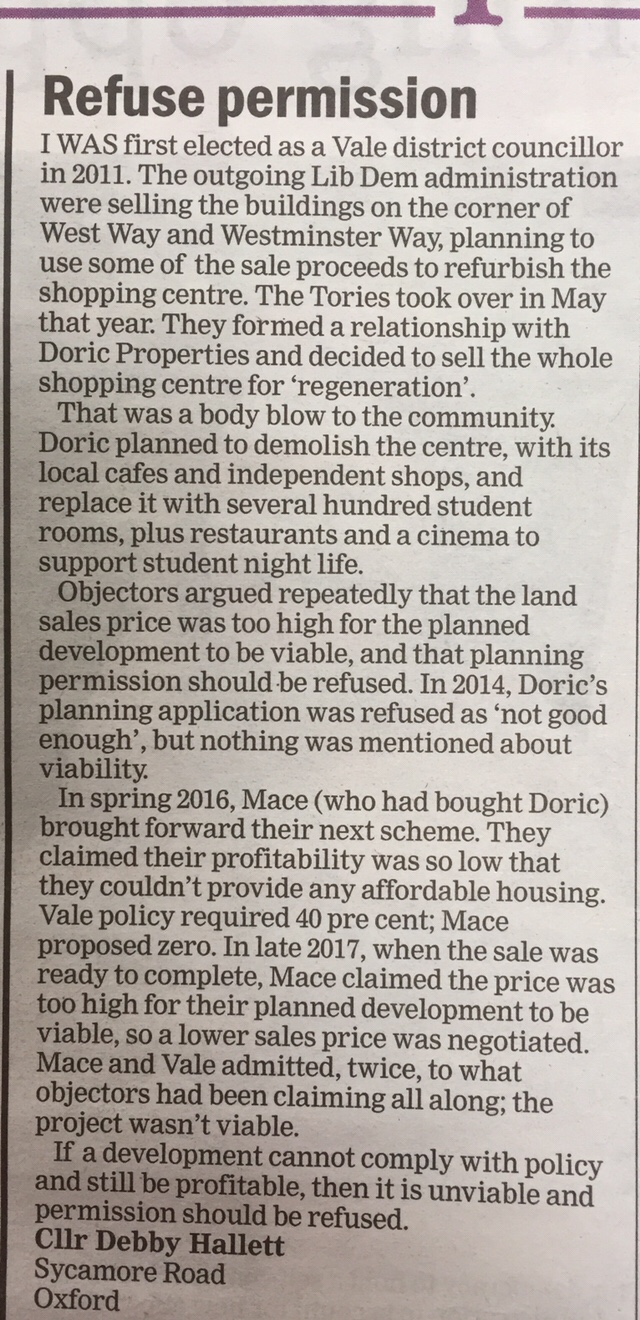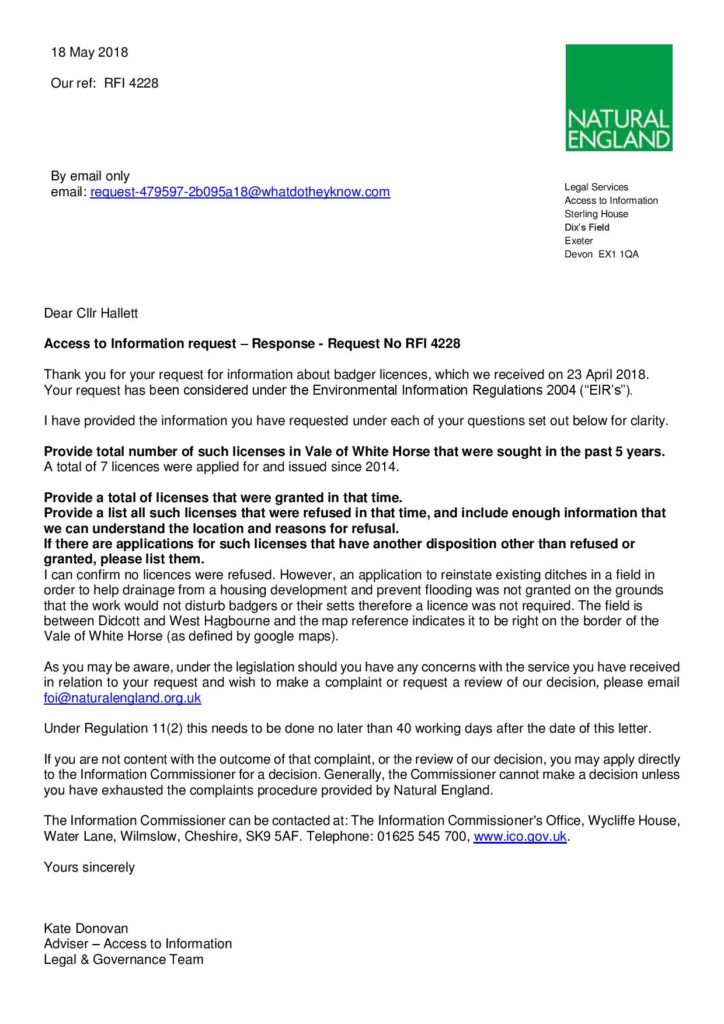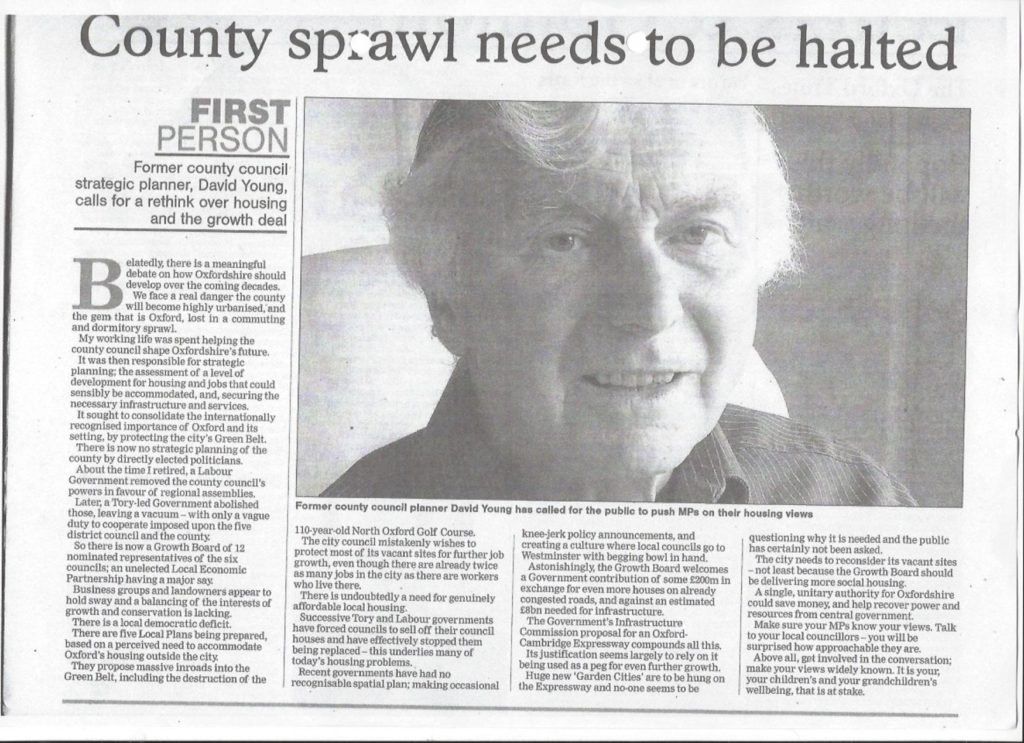At full council on 18th July 2018, the Leader of the council, Cllr Roger Cox, reported that the outsourcing arrangements his administration entered into in order to save £9 million over the life of the contract, will now “break even at best”.
See his full statement on the Vale website, here: http://www.whitehorsedc.gov.uk/news/2018/2018-07/council-leaders-statement
That wording, “break even at best” means most likely it will actually cost our council money over the long term. Let me emphasise that. The outsourcing scheme brought in by the Tory administration in 2016 will not save us any money at all, and in fact will likely cost us money over the 9 years of the contract.
He led off with this, as if it were the MAIN THING:
“I am pleased to say that the insourcing of services from VINCI and the establishment of a direct relationship with Indigo for our Parking Service delivery has gone exceptionally well.”
What he might have said was that the costs of the Vinci contract exceeded the baseline costs from when we did it ourselves, so we brought those services back in house. The cost of that isn’t yet known, but in my opinion is bound to be high; we’ll learn of the details in the financial reporting due in September.
He followed with this:
“I am pleased that Capita have committed to work with us to achieve this and that they support the benefits of the positive and truthful approach our officers have taken…”
I interpret this as a sad attempt to find something positive in this situation: “Well, at least they’re willing to work with us and officers are telling the truth…” A low bar, in my opinion.
This is the MAIN THING, as far as I’m concerned (my emphasis):
“I have specifically sought out assurance from the Chief Executive and our Section 151 Officer regarding the original decision-making process and the information that was made available to members, staff and residents at that time. Based on this, I am satisfied that the original decisions taken by members were appropriate based on the information made available to them at that time. I think all councillors will agree that we are fortunate that our current officers call a spade a spade and have committed themselves to resolving the challenges we face and that we are better informed regarding the detail of the 5Cs contract now than at any other time. However, based on the information that was available to us at the time, I do not believe members made a decision that was illogical, inappropriate or unreasonable.“
By his reference to ‘current officers’, he seems to be saying he holds previous officers accountable for not providing sufficient information to make an informed decision. OK, if Cabinet had known better, they would have done better. Fair enough.
But not GOOD enough.
In fact, poor decisions taken by this Tory administration were highlighted by external auditors Ernst & Young in their 2017 report to Council, when they said, “…Councils had not put in place proper arrangements to allow them to make informed decisions…” . Cllr Cox refers to the auditors’ findings in his report (in the link above, see the penultimate paragraph).
A useful learning point would be to assess what led to this situation, where Cabinet didn’t have the information they needed. Did Cabinet ever ask officers for a report on the reasons why NOT to do this outsourcing contract? I see nothing that tells me they did. What practices can be put into place to be sure Council doesn’t make this same mistake again?
Since the time when this outsourcing decision was taken in 2016, all the key decision makers have stepped down – both councils’ Leaders and the then Chief Executive and main strategic director for this work.
I am disappointed there wasn’t even the smallest whiff of apology in the council leader’s words or his tone. This project has gone so wrong, caused suffering to staff, and cost us a lot of money. He could have said “Sorry”.




